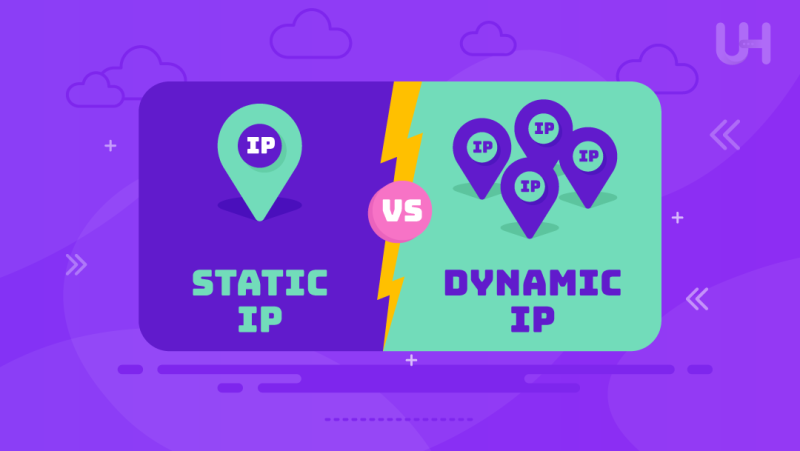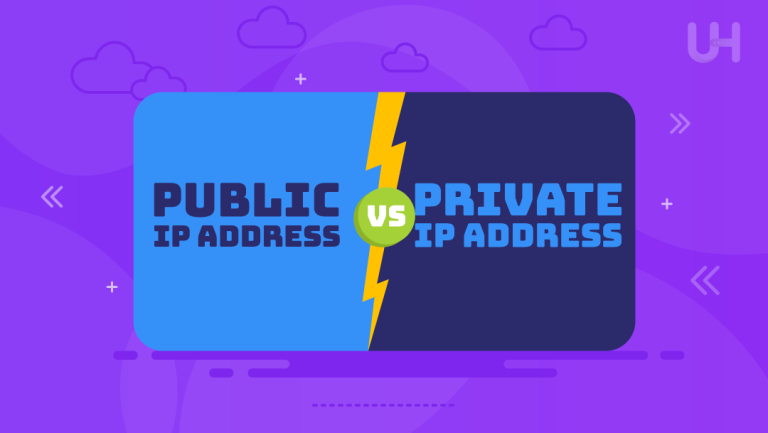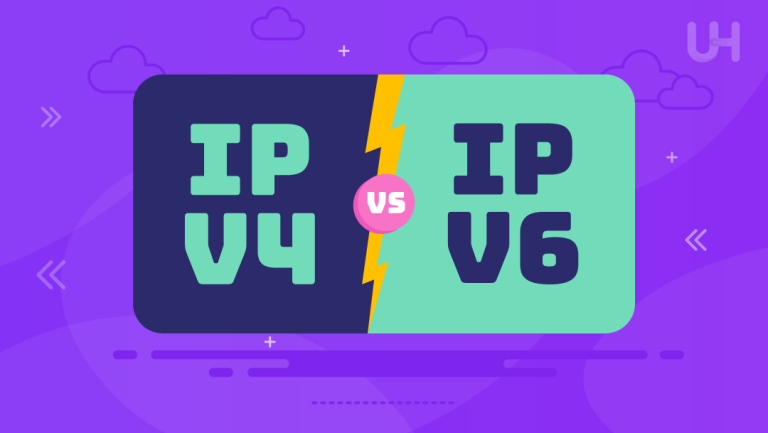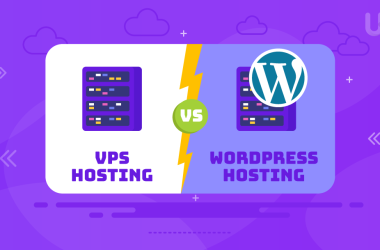The identity of many other devices in a network is made possible by an IP address, which is important in networking. They permit the various devices to communicate through the correct transmission and reception of data. Proper differentiation of Static IP vs Dynamic IP addresses is paramount for anyone who works either in network security management or performance.
In this blog, we will discuss the difference between Dynamic IP vs Static IP addresses and consider their security implications. By the end, you will know when to use which type of IP Address among Static and Dynamic IP, based on your specific security needs and considerations.
What are Static IP Addresses?
A static IP address has a fixed value that does not change when a different device connects to the network. In contrast to dynamic addresses, which periodically change, static IP addresses manually configures and consistently stay the same unless manually altered.
Static IP addresses, such as servers and routers, are primarily used for gratuities or devices requiring continual and predictable access, such as printers or VoIP phones. They ensure high reliability during network operations and ease of manipulating different network resources. Conversely, their fixed nature extensively makes them more predictable, besides making them vulnerable from a security point of view.
How Static IP Addresses Work?
A static IP address is configured manually on a device by a network administrator physically and remains in place until such a time that it can manually be changed. An address on a device is set up by directly placing it or configuring it through the network settings on a router. This includes defining an IP address, subnet mask, gateway, and DNS servers.
Once configured, the device will always use the same IP address whenever it connects to the network, thus ensuring that communication is reliable and easy to predict. A static IP address is quite beneficial for devices you need easy access across the network, such as a virtual server, a network printer, or a remote access point.
Security Advantages of Static IP Addresses
- Consistent Network Access: These static IP addresses provide a stable and consistent connection more effectively secured by firewalls and other security measures.
- Simplified Monitoring: Monitoring and management are easier because certain dedicated IP addresses have specific devices assigned to them. This enhances the identification rate and hence speeds up the troubleshooting process.
- Controlled Access: It facilitates deeper control over the access because it allows or blocks lists of incoming IP addresses, reducing risks from unauthorized access.
- Improved VPN Security: This facilitates the easy configuration of VPNs and ensures that only specified IP addresses can securely connect to the network.
Security Disadvantages of Static IP Addresses
- Predictability: Unalterable in nature, static IP addresses become quickly known, leading to attacks easily targeted by malicious perpetrators.
- Increased Unauthorized Access Risk: Static IP addresses never change. Hackers can spot these and keep trying until they get unauthorized access to the same IP.
- Increased Vulnerability: Intruders can bypass security more easily because the IP is static, which gives them ample time to study any loopholes and exploit them over time.
- DDoS Attack Exposure: Static IPs are more susceptible to DDoS attacks because they are always available and possibly overrun by traffic.
Get Reliable Server For Secure Network Access!
For secure and consistent network access, consider UltaHost’s IP-dedicated servers. With a static IP, you’ll benefit from enhanced security and reliable performance. Choose UltaHost for a secure, powerful, and uninterrupted online presence.
What are Dynamic IP Addresses?
The DHCP server assigns a dynamic IP address whenever a device connects to the network. In contrast with static IP addresses, dynamic ones constantly change after a certain period or each time the device reconnects.
Most ISP managers use dynamic IP addresses for consumer devices at home because they are efficient and cost-effective. This runoff limits the need for manual device setup, while the frequent change in IP address adds one layer of security, making unauthorized tracking or targeting much more difficult.
How Dynamic IP Addresses Work
With dynamic IP addresses, a DHCP automatically assigns the IP address every time a device connects to the network. The DHCP server has a pool of available IP addresses assigned to each connecting device. However, the IP is temporarily assigned to them. The IP will change every other time they reconnect or after a specified time.
The process is automatic, and the device owner has to do nothing. If you have to configure huge numbers of networks, Dynamic IP addresses work effectively; they enable devices to share only a few IP addresses, therefore minimizing the need to assign a unique address to each device.
Security Advantages of Dynamic IP Addresses
- Increased Anonymity: Dynamic IP addresses change from time to time, and this practice makes it more of a challenge for whoever is trying to perpetrate the attack to follow or target a single device consistently.
- Less Risk from Targeted Attacks: With the frequent change in IP addresses, the attack does not repeat on the same device, as the attackers find it difficult to discover.
- DDoS Protection Enhanced: The DDoS attack on dynamic IP addresses is harder since, with the usage of dynamic IP addresses, attackers face addresses that change, meaning they are not continuous.
- Reconfigure Automatically: Dynamic IP allocation reduces the chances of configuration flaws, which could create windows of security threats, as the process takes place automatically via the DHCP server.
Security Disadvantages of Dynamic IP Addresses
- Challenges in Monitoring: The continuous change of IP addresses makes it more difficult to monitor and track devices consistently, which also complicates security management.
- Dangers of IP Conflicts: Dynamic IP addresses can lead to conflicts in the case of faulty address pools managed by the DHCP server, which could disrupt your network and create security vulnerabilities.
- Access Control Issues: Dynamic IP addressing creates operational challenges in implementing strict access control policies since the device’s IP address is dynamic.
- Limited Control Over Address Assignment: If some IP ranges needed to be more secure, users would have less control over the IP addresses assigned to their devices, probably inadvertently opening security gaps.
When to Choose Static IP vs Dynamic IP?

Following are the scenarios where you can decide to choose one approach over the other. Let’s take a look into when to use which:
Static IP
It is better to have a static IP address when control over uniform access to a device is crucial, as in the case of server hosting, controlling remote access, or a VPN facility. Static IPs are most useful for settings where each security configuration, like firewall and controls to access, is finely controllable and uniformly applicable.
Besides, the best way to use static IP addresses is for businesses that need constant connections for services like VoIP, video conferencing, and email servers. The predictability of a static IP can allow easy monitoring, with fast detection of possible security issues and environments with high demands for data privacy and stability.
Dynamic IP
Dynamic IP is more desirable in an environment where security through obscurity is advantageous, such as home networking or casual internet usage. It is often confusing for attackers because targeting specific devices becomes hard when the IP addresses differ. In this way, users who do not need consistency in their access have better security.
Dynamic IPs are also practical for large networks where efficiently managing a pool of addresses is essential, like ISPs or organizations with many devices. They are ideal for users who prioritize ease of setup and lower costs over needing a fixed address, offering a balance between security and practicality.
Conclusion
Static IP vs Dynamic IP addresses have different security implications and fulfill different needs. Static IP addresses provide reliability and are, therefore, appropriate in scenarios that require consistent access and strict security measures, such as website hosting servers or managing VPNs. However, because of their predictability, they come with increased risks.
With dynamic IP addresses, security is even better because of the constant address changes, which are hard for hackers to pin down. Therefore, choose Static or Dynamic IP addresses based on your security and operating requirements.
For enhanced security, consider UltaHost’s DDoS Secured VPS. With dynamic IP options, you’ll enjoy robust protection against DDoS attacks, ensuring your network stays safe. Choose UltaHost for secure, flexible, and resilient online performance.
FAQ
What is an IP Address?
An IP address is a unique number assigned to each network device, enabling it to communicate with others.
What’s the difference between Static IP vs Dynamic IP address?
The static IP number is set and does not change, while a DHCP server can only assign the dynamic assigned address, which changes occasionally.
What’s more secure, Static IP vs Dynamic IP?
Generally, Dynamic IP addresses are more secure because attackers cannot pinpoint particular devices due to periodic changes.
Why will I need a static IP?
A static IP is essential for services requiring consistent, reliable access, such as servers, remote work, or secure VPN connections.
Do Static IP addresses become more straightforward to attack?
Yes, because static IPs are permanent, they are easier for an attacker to locate and target.
Can a dynamic configuration be changed to a static one?
You can switch to a static IP address through your ISP, usually by paying an additional fee or subscription.
Do I need a static IP for my home network?
A dynamic IP address would be ideal for most home networks, allowing for ease and increased security through frequent changes.










